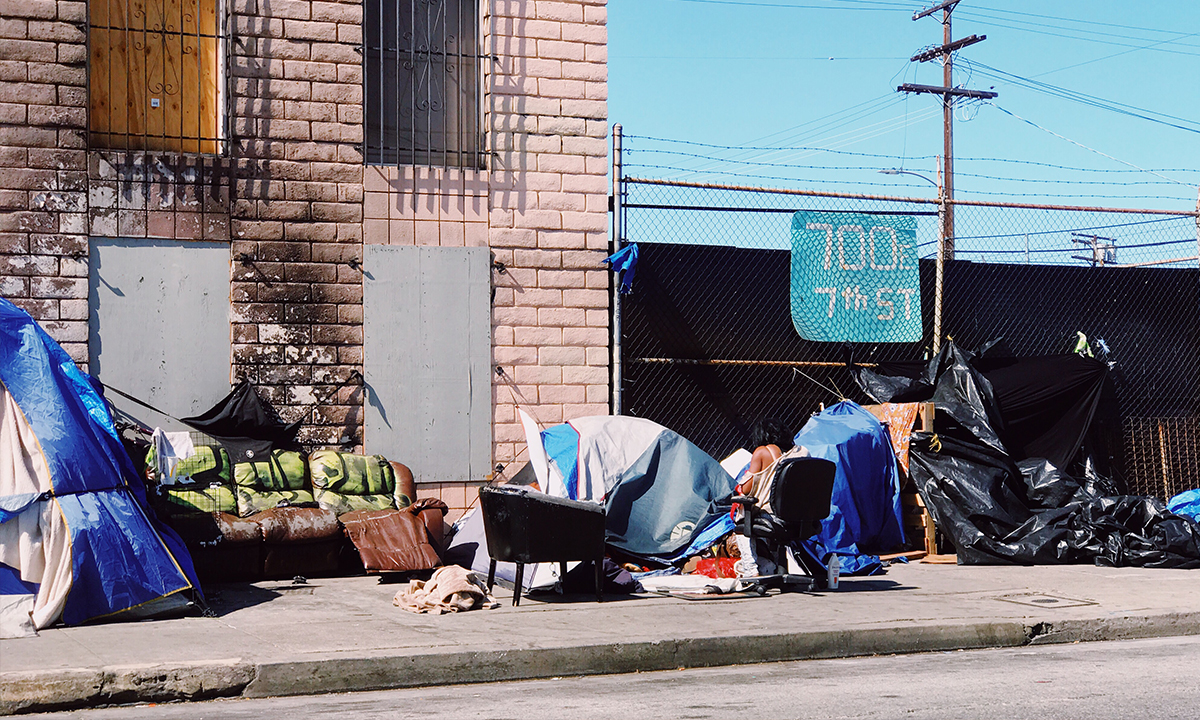According to multiple independent sources, nearly half of all unsheltered homeless, and 150,000 or 22% of all homeless individuals in the U.S. live in the state of California. If these individuals were in the workforce, they would generate $500M in economic activity at the very least. Instead, $1.1B was spent in last year’s state budget on homelessness. The city of Los Angeles alone spent $619M in 2018. In November of 2020, the city of San Diego spent $5.7M to house 900 people which factors to $6,000 per person. The county spent a combined $634M in Fiscal Years 2015 & 2016 alone. So why is California’s homeless population increasing by double-digit percentages despite the billions that have been thrown at the problem?
There are several factors at work here, but to the core of each is a common thread, which is essentially the embracing of policies and programs that facilitate and enable homelessness, and do not demand accountability or reciprocity on the part of the homeless individual to really get the help they need to stand back up on their own two feet.
First, all federal and CA state dollars are tied to the ‘Housing First’ policy which simply put requires a roof over the head of the homeless individual or family, if they will take it, but does not require the individual or family to engage in programs which would serve to ultimately strike to the central causes of their situation. The short-term benefit of shelter is quickly squandered after time expires, and the homeless individual goes back onto the street. According to a study done by the University of Southern California in 2019, 75% of unsheltered homeless have substance abuse disorders, 78% have mental health disorders, and 84% have physical health conditions.
Furthermore, with the failure to pass Proposition 20 last year, which would have essentially repealed Propositions 47 & 57, decriminalization of bad behavior continues to plague this state. Prior to 47 & 57, police could take homeless individuals into custody, then while in holding, work to get them into rehabilitation or shelters where they would be given aid and support and started on the road to recovery. This was a great way to get the homeless off the streets and require their enrollment in rehabilitation or abstinence programs to improve their condition. Today, it is challenging at best to employ this strategy. If we cannot make it uncomfortable and/or unpleasant to live on the streets, the impetus to get checked into a shelter where support and aid is available never materializes.
Some housing organizations point to the lack of affordable housing as a cause for homelessness, however this is exceptionally short-sighted; despite massive investments in affordable and subsidized (Section 8) housing over the last two decades, the number of homeless continues to grow unabated. The city of Vista has hired one social worker, and is considering the hiring of a second which would be very beneficial, but future success will continue to be hampered without greater authority to pull people off the streets to help them live better lives.
There is hope, however, in organizations that refuse to accept federal dollars, and work off of private donations with demonstrated success. Such organizations such as Vista’s own Solutions for Change, who not only have demonstrated success, but have turned the formerly homeless into agents of change who have overcome their own adversity to help bring yet more out of the cycle of despair. And of course, San Diego’s own Father Joe’s Villages who have built and operate over 400 affordable housing units, and continue to offer a wide range of support services which have given individuals and families the skillsets they need to get a job and keep it. If the state would just block grant funds to these organizations—who have proven their value to the community time and again—without restrictions or burdensome and non-value added requirements, and let them do their job, we would see more efficient use of our tax dollars.
The argument that pushing homeless off the streets is somehow ‘not humane’, is not only flawed, but callous. The soft-handed approach to homelessness has failed. We need relief from centralized bureaucratic entanglements in local solutions. We must initiate and expand pilot programs to block grant funds to local non-profits who have proven their value to community time and again. And we must grant those funds with few strings attached, but also with clearly defined measures of effectiveness to be evaluated and reported to demonstrate that these organizations can enjoy greater measures of success without being hamstrung.
We also have to stop decriminalizing bad behavior to give our communities the authority to get people off the streets, especially those in clear distress, with mental health issues, or those who have shown no proclivity in their own rehabilitation. It is sadly likely that some of these individuals may be beyond salvation, but to refuse to extend the tough hand of love that the rest of these individuals need to return them back into society is cruelty by neglect.




